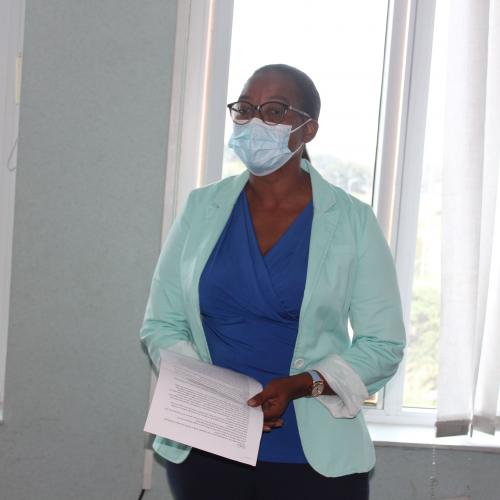By Tapela Morapedi, 31 March 2022
Botswana has recorded modest adverse birth outcomes during and after the COVID-19 national lockdown that was imposed on the nation in response to the COVID-19 global pandemic. Tsepamo Study Coordinator, Modiegi Diseko when presenting findings from a birth outcomes study at the Health Research Results Dissemination Forum recently, said this. The virtual Forum that was held under the Theme: “When Botswana research “SPEAKS” in the era of COVID-19” was meant to share results from different studies across different disciplines that focused on COVID-19.
The Botswana Harvard AIDS Institute Partnership (BHP) conducted a study that evaluated the association between the COVID-19 lockdown and the risk of adverse birth outcomes in the country during the national lockdown. The study evaluated data from an ongoing nationwide birth outcomes surveillance study (Tsepamo Study) to evaluate adverse outcomes and severe adverse outcomes recorded at three time points; pre-lockdown from January 1, 2020 to April 2, 2020, during lockdown from April 3, 2020 to May 7, 2020, and post lockdown from May 8, 2020 to July 20, 2020.
The data was abstracted from the maternity obstetric record at the time of delivery from all women delivering at selected hospitals throughout the country. Diseko revealed that adverse birth outcomes decreased from the pre-lockdown to post lockdown periods in 2020, relative to the change during the same periods in 2017-2019. Adverse birth outcomes included stillbirth, preterm birth, small-for- gestational-age fetuses, and neonatal death while severe adverse outcomes that included stillbirth, very preterm birth, very-small-for-gestational-age fetuses, and as well as neonatal death.
“We used difference-in-differences analyses, and we compared the net change in each outcome from the prelockdown to lockdown periods in 2020 relative to the same 2 periods in 2017-2019 with the net change in each outcome from the prelockdown to post lockdown periods in 2020 relative to the same 2 periods in 2017-2019,” Diseko explained the study method.
She stated that 68,448 women delivered a singleton infant in 2017-2020 between January 1 and July 20 and were included in the analysis. Across the included calendar years and periods, she said the risk of any adverse outcome ranged from 27.92% to 31.70%, and the risk of any severe adverse outcome ranged from 8.40% to 11.38%.
Diseko said that the lockdown period was associated with a 0.81 percentage point reduction in the risk of any adverse outcome (3% relative reduction) and a 0.02 percentage point reduction in the risk of any severe adverse outcome (0% relative reduction).
The post lockdown period was associated with a 1.72 percentage point reduction in the risk of any adverse outcome (5% relative reduction) and a 1.62 percentage point reduction in the risk of any severe adverse outcome (14% relative reduction).
“Reductions in adverse outcomes were largest among women with human immunodeficiency virus and among women delivering at urban delivery sites, driven primarily by reductions in preterm birth and small-for-gestational- age fetuses and these findings may provide insights into associations between mobility and birth outcomes in Botswana and other low- and middle-income countries,” she said.





